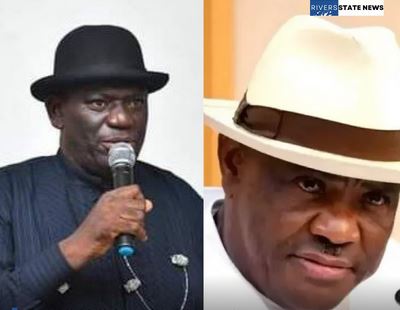
Toward the end of my paid career in international development assistance, I was privileged to be given the opportunity to teach about development and global issues at the university level. One of the lectures I enjoyed preparing, delivering and discussing with students was the growth of freedom and democracy in our world. That trend in recent years has seemingly come to abrupt end and, indeed, is in reverse! Read this article for free: Already have an account? As we navigate through unprecedented times, our journalists are working harder than ever to bring you the latest local updates to keep you safe and informed.
Now, more than ever, we need your support. Starting at $15.99 plus taxes every four weeks you can access your Brandon Sun online and full access to all content as it appears on our website.

or call circulation directly at (204) 727-0527. Your pledge helps to ensure we provide the news that matters most to your community! Toward the end of my paid career in international development assistance, I was privileged to be given the opportunity to teach about development and global issues at the university level. One of the lectures I enjoyed preparing, delivering and discussing with students was the growth of freedom and democracy in our world.
That trend in recent years has seemingly come to abrupt end and, indeed, is in reverse! Read unlimited articles for free today: Already have an account? Opinion Toward the end of my paid career in international development assistance, I was privileged to be given the opportunity to teach about development and global issues at the university level. One of the lectures I enjoyed preparing, delivering and discussing with students was the growth of freedom and democracy in our world. That trend in recent years has seemingly come to abrupt end and, indeed, is in reverse! A 2022 edition of Geographical magazine focuses on “democracies in decline,” outlining how, that year, as much as 70 per cent of humanity lived under autocratic regimes.
Autocracy is defined as a system of government dominated by one person with absolute power. Domineering rule occurs when “the boss” shifts between autocracy, persuasion and consultation. The countries most guilty of these behaviours include Hungary and Belarus, who return the same leadership after each election, even if it is clear that these “strongmen” have lost.
They have a cosy relationship with Russia’s Putin who would use force to keep them in power. He has shown this with his actions against Ukraine. Hungary, which is still part of NATO, is certainly an outlier in that alliance.
Others in the autocratic category include Turkey which, if you’ve been following recent world news, has jailed its main presidential opposition candidate for upcoming elections, the Mayor of Istanbul, on trumped up charges of terrorism, triggering massive street demonstrations that have been brutally put down. Jailing opposition leaders is not an unusual response by autocratic leaders to competition by democratic forces. Of course, Russia has jailed and even assassinated opposition politicians and journalists to keep power in elite hands.
People listen to speeches during a rally called by Republican People’s Party or (CHP) against the arrest of Istanbul’s Mayor Ekrem Imamoglu, in Istanbul, Turkey on Saturday. Turkey is just one example of a country where democracy is under attack. As Canadians head to the polls soon, now is a good time to look for signs of autocracy in our own country and make our voices heard, Zack Gross writes.
(The Associated Press) Myanmar (Burma) has been ruled by a military junta for many years, jailing democratic leader Aung San Suu Kyi. This has lead in the past couple of years to a civil war, and a BBC report says that the military actually now only controls one-quarter of the country. Venezuela is another example autocracy, this one in Latin America of under Nicolas Meduro.
There are lots of examples, and with the significant changes in governance in the US under the Trump regime another huge and influential country is falling into this category. Canada is also implicated as some of our own political actors connect closely to this global and organized move toward autocracy. Ultimately, it’s not a question of whether a country is right-wing or left-wing, but rather what freedom the population has.
So, what defines freedom? The Human Freedom Index, compiled by the Cato and Fraser Institutes, not radical groups by any means, lists what makes up “freedom” for any population. These include observance of the rule of law, safety and security for members of the public and freedom of religion, of assembly and association, of expression, and of trade, among other factors. When you examine the current actions of the U.
S. government, many of these aspects have fallen by the wayside, as courts are impugned and ignored, immigrants are jailed and expelled, peaceful demonstrators are deported without due process and trade agreements are garbaged. Most recent ranking has Canada at number 11 in the world on the Human Freedom Index, and the US at 17, although this figure predates Trump’s inauguration.
The Index cites Canada’s high ranking among 165 countries surveyed, acknowledging that we have a strong democracy, generally high income and are environmentally conscious, tolerant of diversity, and generous in charitable giving. It is instructive to compare these factors with the political party platforms in the current federal election campaign. Which parties support continued action on climate change, foreign aid, and diversity? Which parties are calling out those who are undermining democratic institutions around the world? The top countries in the Index are Switzerland, New Zealand, Denmark, Luxembourg and Ireland.
Countries that are wealthier are often at the top of any list, whether it measures education, health, environment or opportunity. In today’s world, that usually puts northern European, southeast Asian/Pacific and North American countries at an advantage. Three significant authors and public policy analysts to follow on these topics are the Atlantic magazine’s Anne Applebaum, with her latest book, “Autocracy, Inc.
,” former CBC journalist Carol Off with her book “At a Loss for Words,” and former Dragon’s Den member Arlene Dickinson with her Substack column. None of these people are radicals, but rather are balanced, informed observers of current political trends, many of which are very worrying. Our election campaign gives us a chance to make our concerns and opinions known by engaging with our candidates and by how we vote.
That is the essence of our democracy and freedom. » Zack Gross is Board Chair of the Marquis Project, a Brandon-Westman based international development organization. Advertisement Advertisement.















